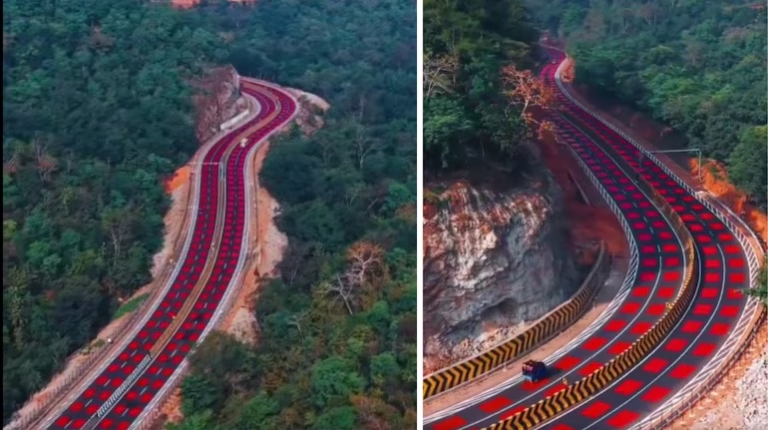Goa ore
The State Board for Wildlife (SBWL) has approved ore handling at Kalem railway station inside the Bhagwan Mahaveer Wildlife Sanctuary—confirming what many already knew: Goa’s tiger habitats are being traded for profit. The 0.76-hectare Goa ore project, presented as a routine transport upgrade, is another quiet victory for the mining lobby that has long dictated state policy.
The Supreme Court ordered a halt on new works in areas marked for the proposed Mhadei Tiger Reserve. But Goa’s wildlife board has ignored the warning. The National Tiger Conservation Authority (NTCA) identified Mhadei as critical tiger habitat years ago. Instead of acting, the government continues to stall the reserve’s declaration—because the forest is worth more dead than alive.
The original report in Goemkarponn described the clearance as conditional: “no harm to wildlife.” That phrase has become Goa’s favorite cover story. What it really means is business as usual—trucks, ore dust, and silence.
Goa ore transport through protected forest exposes the state’s core failure: political will has been replaced by financial dependence. The Goa Foundation’s legal appeals and the NTCA’s letters gather dust while iron shipments move freely. Every delay in declaring the Mhadei Tiger Reserve protects the same companies funding Goa’s elections.
The political failure runs deep. Environmental law is used not to preserve but to postpone. Every “study,” “committee,” or “consultation” is a smokescreen for continued extraction. The Goa government has learned to exploit conservation language to shield industrial intent.
Goa ore handling at Kalem is just one example. The sanctuary sits in the Western Ghats—one of the world’s biodiversity hotspots—yet it is treated as expendable land. Even within the SBWL, dissenting members have called for the project to move outside the sanctuary. Their suggestions were ignored.
Goa ore corruption?
This is not mismanagement. It’s deliberate. and it reeks to corruption. Goa’s refusal to declare the Mhadei Tiger Reserve is a political strategy rooted in greed. Every undeclared forest allows ore to move, money to flow, and accountability to vanish. The Supreme Court’s “status quo” order has become a tool of delay, not protection.
The forest doesn’t need more committees. It needs courage. Until the Mhadei reserve is declared, Goa will remain a model of how governance disguises extraction as development. And Goa ore will continue to symbolize the cost of that deception—profits measured in tonnes, losses measured in silence.
Bhagwan Mahaveer and Mhadei are not separate battlegrounds—they are the same forest system, carved and renamed to disguise continuity. The political failure lies in pretending otherwise. Goa’s leadership speaks of “sustainable development” while hollowing out the very ecosystems that sustain it. When profits depend on postponing protection, delay becomes policy.
Even within the wildlife board, a few dissenters have protested. Sanvordem MLA Ganesh Gaonkar proposed relocating ore handling two kilometers outside the sanctuary—a modest, logical solution. Others demanded an independent environmental impact review. Both suggestions were ignored. Goa doesn’t lack expertise; it lacks integrity.
The Supreme Court’s directive to maintain status quo in tiger reserve areas is not being misinterpreted—it’s being defied. By keeping Mhadei unnotified, the state ensures that every truckload of ore remains technically “legal.” This is the genius of bureaucratic corruption: to make destruction look compliant.
Meanwhile, the forest bleeds quietly. Bhagwan Mahaveer’s rivers carry ore residue downstream, the elephants cross roads that grow busier each month, and tiger presence—still recorded in camera traps—is treated as an inconvenience. The government will quote “balance” and “development,” but the truth is raw: greed writes Goa’s environmental policy.
Kalem is not an isolated case; it’s a symptom of systemic rot. Each time the state defers the Mhadei declaration, it strengthens the alliance between political power and industrial interest. And until Goa chooses nature over money, the word “reserve” will remain what it already is here—just a formality waiting to be sold.







